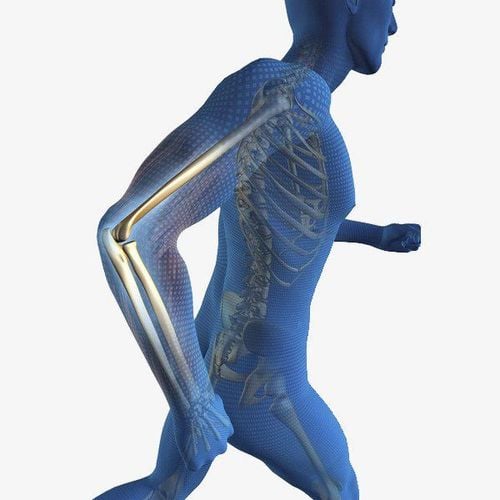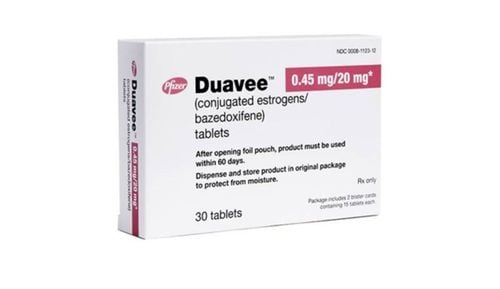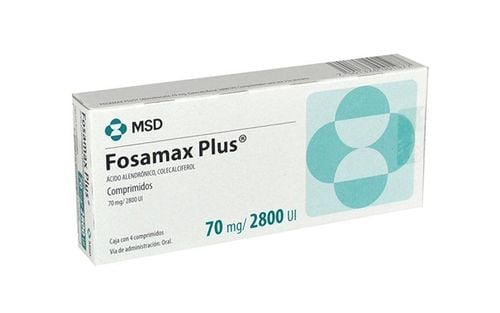This is an automatically translated article.
Vitamin D plays an important role in helping the body absorb calcium to help build strong bones and teeth. In addition, it also plays a role in insulin production and immune function. Therefore, vitamin D deficiency not only makes bones thin, brittle and easily deformed, but also increases the risk of many diseases outside the skeletal system such as infections, cancer, diabetes...1. The Role of Vitamin D
Vitamin D is essential for strong bones, as it helps the body use calcium from the diet. Not only is vitamin D deficiency new to rickets, but a growing number of studies are revealing the importance of vitamin D in protecting against a range of health problems. Vitamin D deficiency - when vitamin D levels in the body are too low - can cause bones to become thin, brittle, or misaligned.
Vitamin D also plays a role in insulin production and immune function. Today, there are beginning to be studies on the relationship of vitamin D to the prevention of chronic diseases and cancer. Although the amount of vitamin that adults get from the diet, it is often less than recommended.
For most adults, vitamin deficiency is not a cause for concern. However, certain groups of people, especially those who are obese, have dark skin tone, and are over the age of 65, may have lower vitamin D levels due to diet, less time in the sun or other diseases. another factor.
The recommended dietary intake of vitamin D for adults (RDA) is 600 IU/day. And this number can be up to 800 IU / day for people over 70 years old. To reach this level, it is necessary to choose foods rich in vitamin D. For example, salmon, tuna, halibut, ... However, high levels of vitamin D in the body have not been proven to bring greater benefits to the body. In fact, too much vitamin D can also be linked to other health problems.

Vitamin D rất cần thiết cho xương
2. Causes of vitamin D deficiency
Vitamin D deficiency can occur because:
Not consuming the recommended amount of vitamin D. This can happen if using a vegan diet. Because most natural food sources are animals that contain a lot of vitamin D including: fish, fish oil, egg yolks, milk... not used in the diet. Limit time in the sun. Vitamin D is made by the body from exposure to sunlight. If you only stay indoors or use sunscreen products such as sunscreen, protective clothing, you will reduce your skin's ability to contact sunlight to synthesize vitamin D. Dark skin: Melanin pigments reduces the skin's ability to make vitamin D in response to sunlight. The kidneys cannot convert vitamin D to its active form. The digestive system does not absorb vitamin D adequately. Some people may have medical problems such as Crohn's disease, cystic fibrosis, and Celiac disease, which can affect the gut's ability to absorb vitamin D from foods . Obesity: Vitamin D is extracted from the blood by fat cells, and alters its release into the circulation. People with a body mass index of 30 or more often have low blood levels of vitamin D.

Người bị bệnh lý thận có thể xảy ra tình trạng thiếu vitamin D
2. Signs of vitamin D deficiency
2.1. Frequent illness or infection One of the most important roles of vitamin D is to keep the immune system strong so it can fight off viruses and bacteria that cause illness. So, the most common sign of vitamin D deficiency is an increased risk of disease or infection.
Vitamin D interacts directly with the cells responsible for fighting infection. If you get sick often, especially with colds or flu, low vitamin D levels will be one of the contributing factors.
Several large observational studies have shown a relationship between vitamin D deficiency and respiratory infections such as colds, bronchitis, and pneumonia. Or other research has also demonstrated that vitamin D supplements up to 4,000 IU/day can reduce the risk of respiratory infections. Or another study in people with chronic lung disorders (COPD), only those with severe vitamin D deficiency showed good results after intervention using high-dose supplements for one year

Thường xuyên ốm hoặc bị nhiễm bệnh do thiếu vitamin D
2.2. Fatigue Feeling tired has many causes and vitamin D deficiency can be one of them. Case studies have shown that low blood levels of vitamin D can cause fatigue that negatively or severely affects quality of life.
In one case study, women complained of fatigue and chronic daytime headaches. After testing, it was found that the vitamin D concentration in the blood was only 5.9ng/ml. This is an extremely low number. And when vitamin D was added, the concentration increased to 39ng/ml and the symptoms of the disease were resolved. Or another large observational study that looked at the link between vitamin D and fatigue in young women found that women with blood levels of vitamin D lower than 20 ng/ml were more likely to complain reported more fatigue than those with blood levels above 30ng/ml.

Mệt mỏi do thiếu vitamin D
2.3. Bone and back pain Low blood levels of vitamin D can be a cause or contributing factor to bone pain and low back pain.
Large observational studies have found a relationship between vitamin D deficiency and chronic back pain. In addition, the researchers also found that vitamin D-deficient people were more likely to have back pain, including severe back pain that limits their daytime activities.
Plus, in a controlled study, people with vitamin D deficiency were twice as likely to have bone pain in their legs, ribs, or joints than people with normal blood levels of D.
2.4. Depression Depression can be a sign of vitamin D deficiency. In an analytical study, 65% of observational studies found a relationship between blood vitamin D levels and depression. In addition, several other controlled studies have shown that giving vitamin D to people with deficiency can improve depression including seasonal depression.
2.5. Wound healing Insufficient levels of vitamin D in the blood can lead to delayed wound healing after surgery, injury, or infection. Test-tube studies show that vitamin D increases the production of compounds that are important for new skin formation as part of the wound healing process.
A study in people who had dental surgery showed that healing was limited by vitamin D deficiency. It has also been suggested that the role of vitamin D in controlling inflammation and fighting infection is important. for proper treatment.
Or another analysis looked at in diabetic patients with foot infections found that those with severe vitamin D deficiency were more likely to have markers of inflammation that could be dangerous to the feet. wound healing. Or another study found that when vitamin D-deficient patients with foot ulcers were treated with the vitamin, ulcer size decreased by an average of 28%.

Vitamin D giúp chữa lành vết thương
2.6. Bone loss Vitamin D plays an important role in calcium absorption and bone metabolism. Many older people are diagnosed with bone loss and believe they need to take in more calcium. However, their bone loss could be due to a vitamin D deficiency. Low bone density is a sign that the bones have lost calcium and other minerals. This puts older adults, especially women, at a higher risk of fracture.
In a large observational study of more than 1,100 middle-aged women in perimenopause or menopause, researchers found a strong association between low vitamin D levels and low bone mineral density.
2.7. Muscle pain Causes of muscle pain are often difficult to identify. Several studies have provided evidence that vitamin D deficiency may be a potential cause of muscle pain in children and adults.
In one study, 71% of people with chronic pain were found to be vitamin D deficient. Because vitamin D is present in nerve cells called nociceptors that express pain. In another study in 120 vitamin D-deficient children, signs of muscle pain increased, but a single dose of the vitamin reduced pain scores by an average of 57%. Once you have a clear understanding of the role and importance of vitamin D in the body, you should actively adjust your diet and supplement with vitamins to ensure health and minimize the risk of disease.













